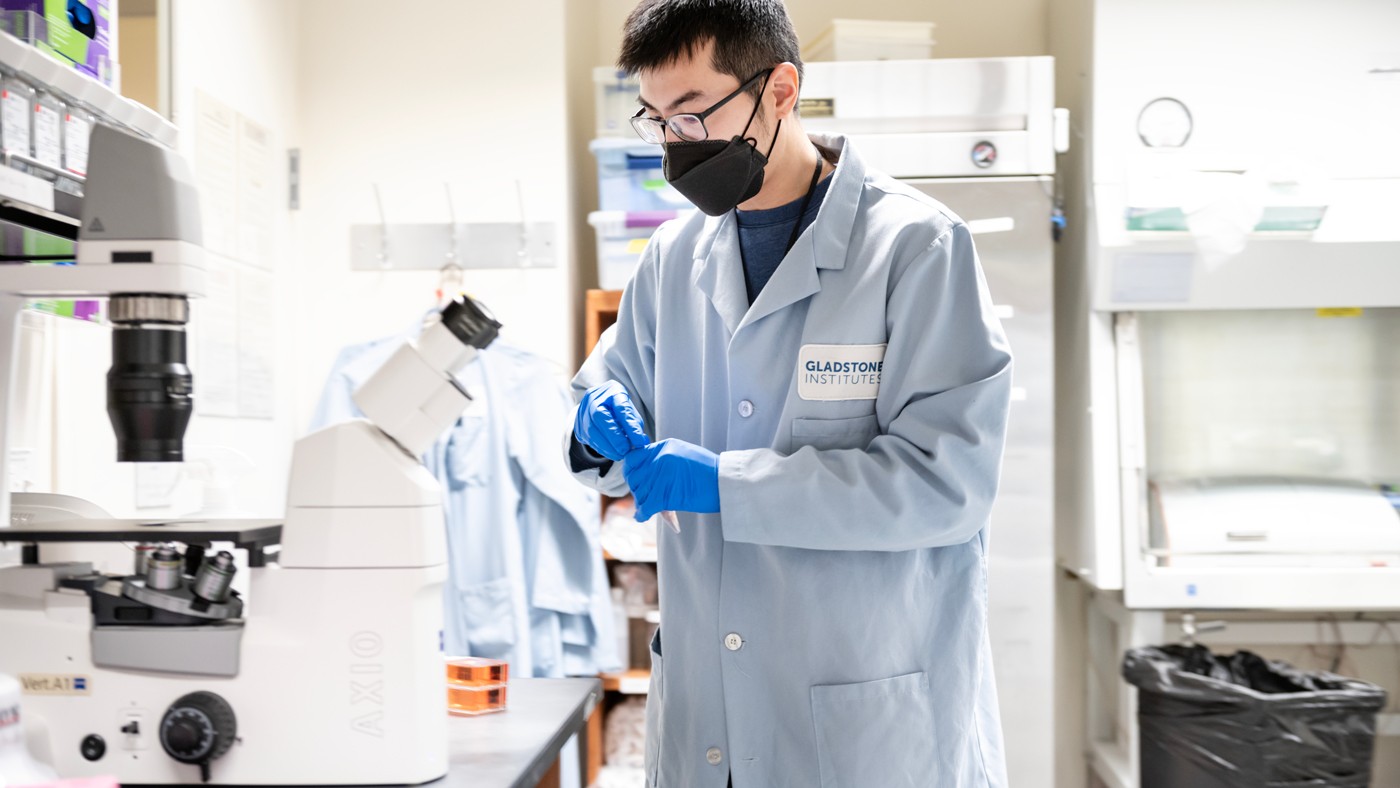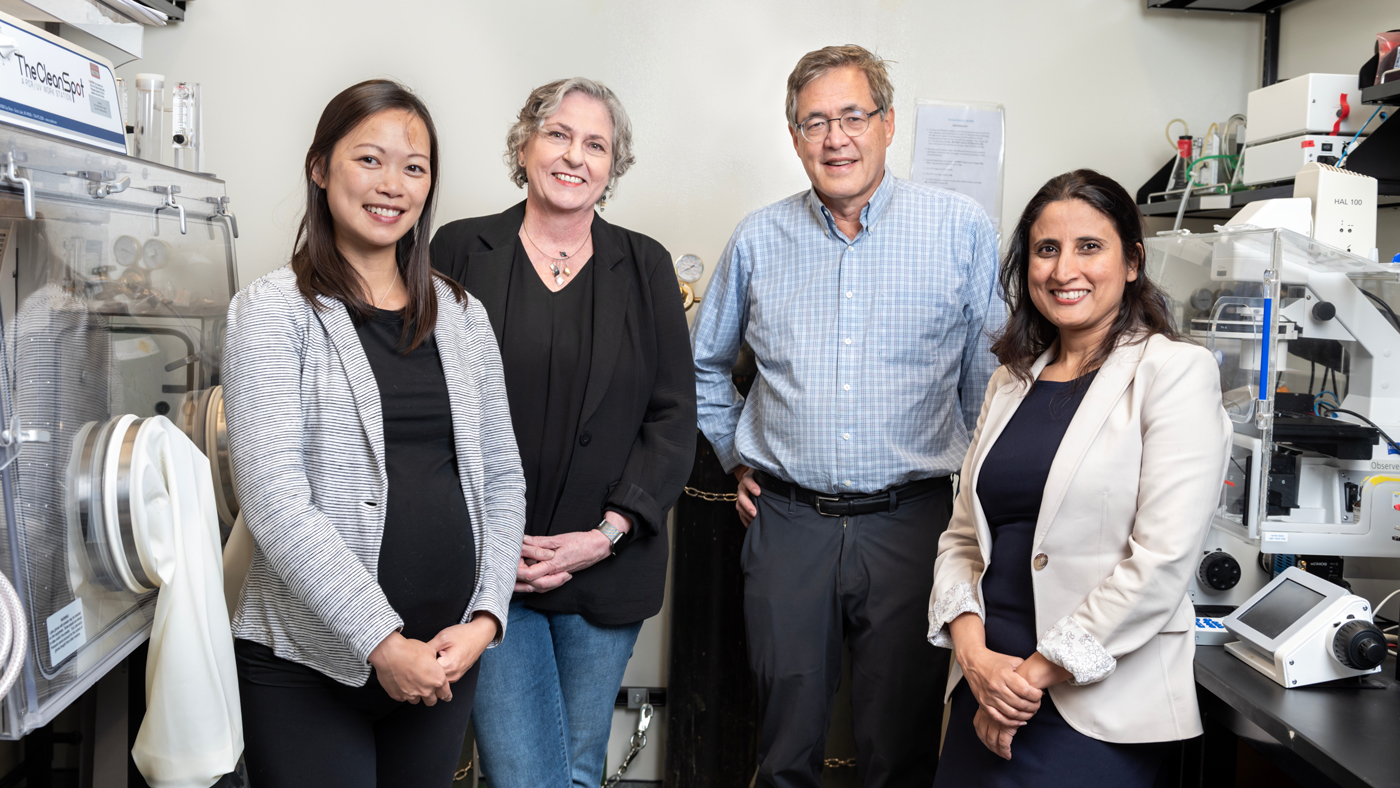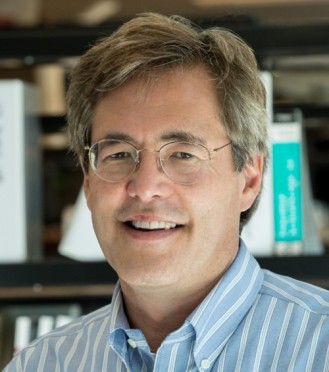Gladstone NOW: The Campaign Join Us on the Journey✕

Sam Hu, a research technician in Gladstone Institutes' Stem Cell Core facility, prepares induced pluripotent stem cells for microscopy analysis to evaluate their quality. Gladstone will strengthen its stem cell modeling capabilities with a new grant from the California Institute for Regenerative Medicine; the specialized equipment and expertise will be available to researchers across the state.
For well over a decade, Gladstone Institutes has been at the forefront of stem cell science. And now, powered by a $4 million grant from the California Institute for Regenerative Medicine, Gladstone will expand its capabilities even further by establishing a center for stem cell disease modeling and CRISPR drug screening.
The center, available to researchers at Gladstone and across the state of California, will fuel the discovery of novel therapies and cures for diseases of the nervous system, heart, and immune system, says Bruce Conklin, MD, senior investigator at Gladstone Institutes, who led coordination with the California Institute for Regenerative Medicine (CIRM).
“The fast-growing field of stem cell science has opened the door to a whole new understanding of human disease,” Conklin says. “Combined with the power of CRISPR, we now have the ability to not only see how disease forms and progresses in highly realistic models, but also pinpoint the exact genes at the root of disease.”
The center will be co-directed by Anke Meyer-Franke, PhD, who also serves as director of Gladstone’s Assay Development and Drug Development Core, and Ritu Kumar, PhD, director of Gladstone’s Stem Cell Core. Alex Pico, PhD, director of Gladstone’s Bioinformatics Core, also will provide leadership in key areas of data analysis and bioinformatics.
Gladstone is among five California research institutions to be awarded a CIRM grant to create a “shared-resources laboratory” for stem cell-based disease modeling. In issuing a total of $21.3 million in such grants, CIRM’s goal is to create a network of laboratories that foster collaboration among California researchers and address the challenges that hinder progress in the regenerative medicine field.
“Through these awards, CIRM will continue to drive progress, now focusing on cutting-edge disease modeling using human stem cells,” says Rosa Canet-Aviles, PhD, vice president of scientific programs and education at CIRM, in a statement announcing the grant recipients.
Stem cell disease models are often created from actual patient cell samples, using an approach known as induced pluripotent stem cell (iPSC) technology, invented by Gladstone Senior Investigator Shinya Yamanaka, MD, PhD. Yamanaka won the 2012 Nobel Prize in Physiology or Medicine for his discovery that adult cells can be reprogrammed into pluripotent cells, which can then be induced to become any cell or tissue in the body.
Using stem cells in this way has proven to be an invaluable tool for understanding disease mechanisms, identifying novel drug targets, and engineering cellular therapies. However, the many components of stem cell modeling require highly specialized equipment and expertise—a roadblock for many labs.
“The Gladstone center will remove these barriers by providing the equipment and expertise, and making it available to researchers pursuing important questions about disease and human health,” Meyer-Franke says.

Gladstone Institutes will establish a center for stem cell disease modeling and CRISPR drug screening, funded by a $4 million grant from the California Institute for Regenerative Medicine. Pictured here is the team that worked closely on the project: Nicole Leung, senior grants writer; Anke Meyer-Franke, director of the Assay Development and Drug Discovery Core; Bruce Conklin, senior investigator; and Ritu Kumar, director of the Stem Cell Core. Meyer-Franke and Kumar will co-direct the new center.
“The grant allows us to create high-throughput stem cell modeling platforms, ensuring accessibility for any California researcher to use our intricate stem cell-derived models,” Kumar says. She notes that the center is founded upon Gladstone’s existing core facilities' complementary strengths and focuses on investing in cutting-edge technology typically challenging for labs to obtain.
In addition, the center will include high-throughput CRISPR genetic screening, a powerful companion to stem cell disease modeling that allows scientists to understand the function of the thousands of individual genes in the human genome. By understanding which genes are contributing to disease, scientists can then develop targeted treatment approaches.
Notably, Gladstone already is home to The Roddenberry Stem Cell Center, an international powerhouse in stem cell research. Established in 2011 with a gift from the Roddenberry Foundation in honor of Eugene Roddenberry, the creator of Star Trek, the center operates with a vision of disrupting basic and translational stem cell science. The Roddenberry Stem Cell Center provides resources for the Gladstone community to pursue new biomedical discoveries and conduct the rigorous testing needed to translate their most promising findings to the clinic.
The new shared-resources lab funded by CIRM will further amplify Gladstone's stem cell capabilities and benefit non-Gladstone researchers, as well.
As part of the CIRM grant, Gladstone plans to “democratize” its innovative research methods and materials to a diverse population of students and researchers in California. This will include hands-on stem cell and bioinformatics courses, workshops, and tutorials, with the goal of providing greater accessibility to disease modeling and screening to accelerate stem cell research across the state.
“This grant gives us the opportunity to disseminate Gladstone’s deep stem cell knowledge throughout California," Kumar says.
CIRM is the world’s largest institution dedicated to regenerative medicine, driven by a mission to accelerate world-class science and deliver transformative regenerative medicine treatments. Gladstone has worked closely with CIRM for many years, notably through the CIRM Scholars Program. As part of this program, Gladstone has provided robust training in stem cell science and regenerative medicine to dozens of early-career researchers, shaping the next generation of talent.
Featured Experts
CIRM Awards $7.5 Million in Discovery Grants to Gladstone Investigators
CIRM Awards $7.5 Million in Discovery Grants to Gladstone Investigators
Two ambitious research projects led by Gladstone investigators are boosted by funds from the California Institute for Regenerative Medicine.
Grants News Release Congenital Heart Disease Cardiovascular Disease Bruneau Lab Conklin Lab CRISPR/Gene Editing Human Genetics Regenerative MedicineKarin Pelka Wins Grant to Advance Immunotherapy for Colorectal Cancer
Karin Pelka Wins Grant to Advance Immunotherapy for Colorectal Cancer
The Colorectal Cancer Alliance has awarded Pelka a $500,000 grant to develop novel immunotherapies that overcome the most common form of colorectal cancer.
Grants News Release Cancer Pelka Lab2025 Searle Scholar Andrew Yang to Expand Inquiry into Blood-Brain Barrier
2025 Searle Scholar Andrew Yang to Expand Inquiry into Blood-Brain Barrier
The Gladstone scientist has received a prize to study how molecules cross the blood-brain barrier and influence brain health.
Grants News Release Neurological Disease Yang Lab




